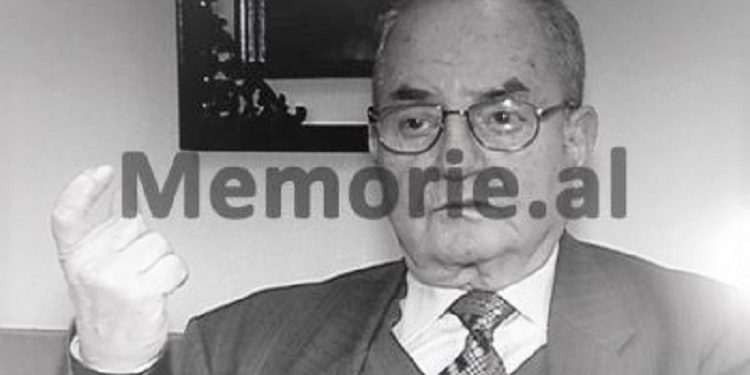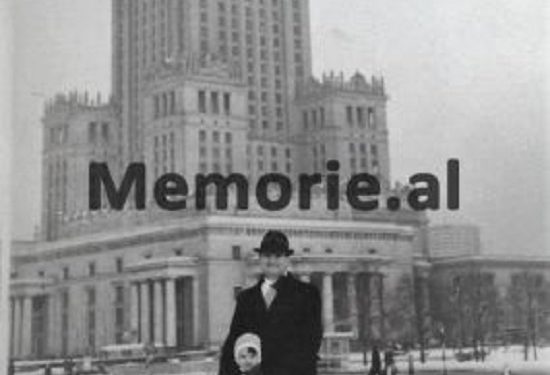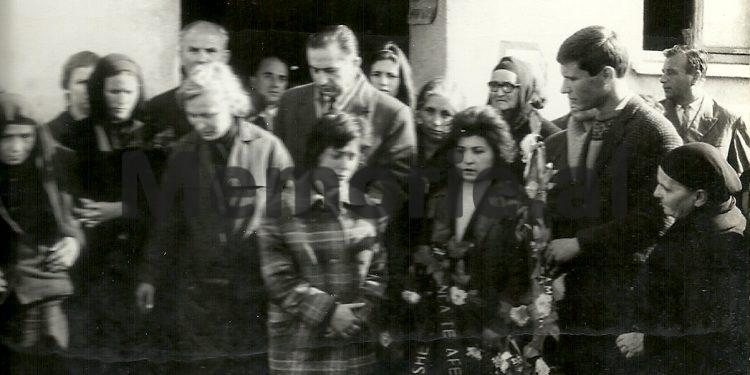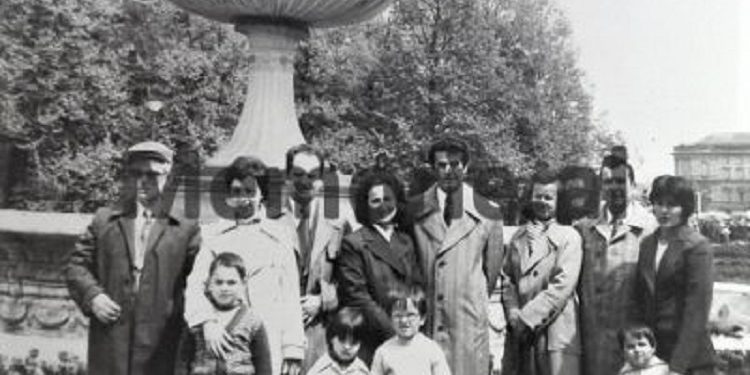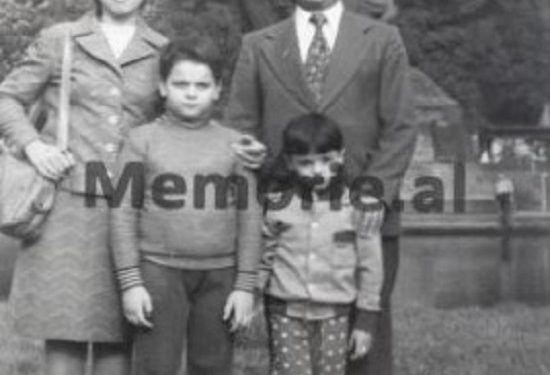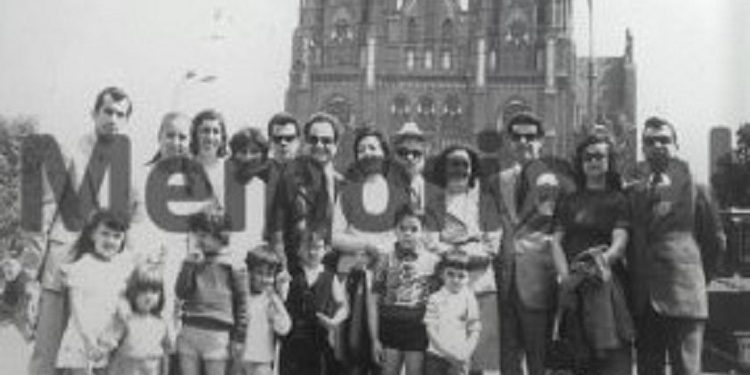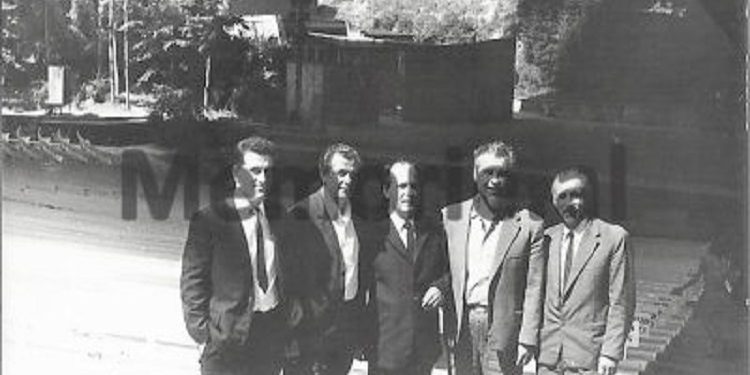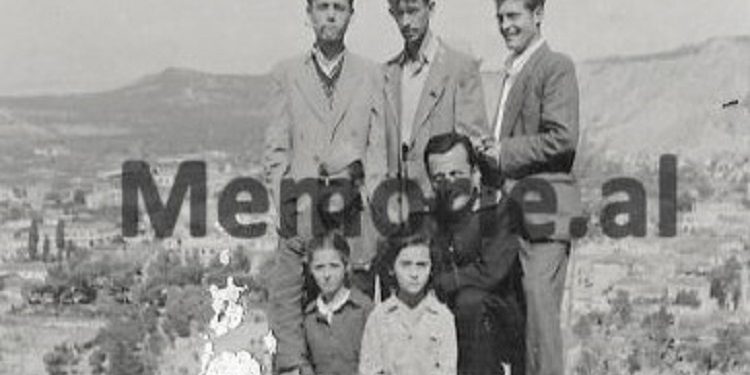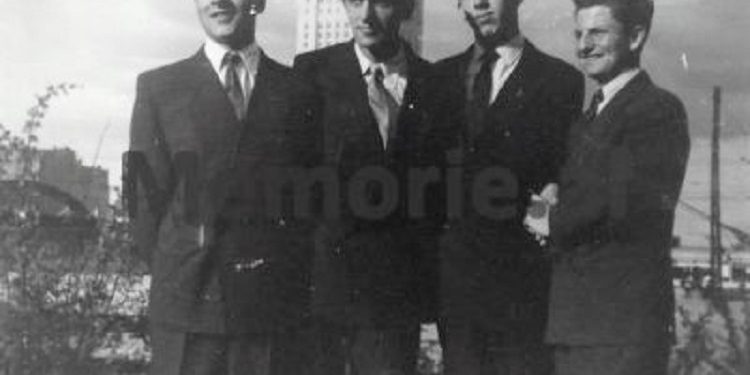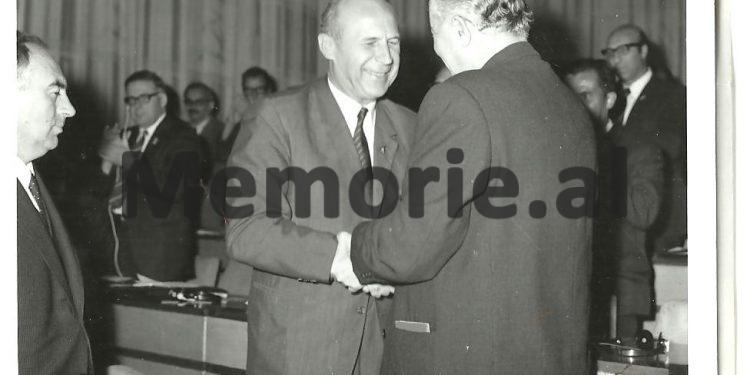Dashnor Kaloçi
Memorie.al publishes an interview with Mr. Leonard Zisi, a former diplomat and ambassador of Albania for years in Warsaw, who in the late 50’s studied in Poland and after the breakdown of relations between the two countries, along with dozens of other Albanian students was returned home graduating from Tirana State University. The testimony of former Ambassador Zisi, regarding the period of studies in Poland, how the relations between the two countries were broken, Gomulka’s accusations against Enver Hoxha at the meeting of 81 parties in Moscow and then in Romania, the return of students to Albania, the meetings with the comrades of the “group”, how he learned the arrest of his comrades who were hit as a “group of Polish agents”, the danger of the expansion of that “group”, the intervention of Hysni Kapos, to the extreme irritation of official relations between Albania and Poland, after the official recognition of Tirana by Kazimierz Mijal in Albania, who was the leader of the Polish opposition and stayed in Albania for 12 years being treated the same as members of the Politburo, with villas, servants, cars, etc.
“In 1956, the events that took place in the socialist camp, that is, the anti-communist movements, began with the Poles, as Vladislav Gomulka, who had been in prison until then, came to power. As in Albania it was Koçi Xoxe’s group, in Bulgaria Kostov’s group, in Hungary Rajku’s group and all of them were sentenced to death, but in Poland, it happened differently, as they were only imprisoned. So Enver Hoxha had an antipathy for Gomulka and he writes this himself in his books. There was also such a situation, wherein 1960 the issue of Teme Sejko came out, and in a meeting, exactly in 1960, between the first secretaries of the Warsaw Pact parties, Enver Hoxha raised this issue and Gomulka stood up and say; “Ore…, come out once, wait for all this, that when there is such an accusation, that if the territorial integrity of a member of the Warsaw Pact is violated, then the whole Treaty itself is violated.” Witnessing for Memorie.al, is Leonard Zisi, a former diplomat and ambassador of Albania for years in Warsaw, Poland, who shows how the disputes initially arose between official Tirana and Poland, which would then bring out the anger. of Enver Hoxha against Gomulka, with which is connected the arrest and the coup that took place in 1975, the so-called “group of Polish agents”, where most of the 12 members of that “group” were friends of Leonard, who had studied together in Poland in the late 1950s.
Mr. Leonard, when and under what circumstances did you meet the members of the so-called “group of Polish agents” who were convicted in 1975?
With the colleagues of the group that was convicted, with Ylli Alibali, Faik Gojani, Vedat Buzin, Spiro Nikolla, Shuaip Nurje, and all the other colleagues, we studied together in the years 1956-1961. As it is known, due to the contradictions that were created between our ruling party, and the “revisionists” as Enver called them, diplomatic relations with the Soviet Union were severed and the Albanian state withdrew all students who were abroad, including all students who were in Poland. Many of us could not defend our degree after 5 years there.
How did you and other Albanian students personally experience what happened, that is, the breakdown of official relations between Albania and Poland and your return to your homeland without graduating?
Of course this was an element that in one way or another created dissatisfaction among all students and it is understood that none of us could agree with what was happening, but we had no choice but to submit to fate and we were returning to Albania.
When did you graduate?
In 1962 we graduated and then we were each assigned to work in different cities of Albania.
After returning to Albania, did you maintain the friendship you had in Poland, so did you meet your group in an organized way?
After our return from Poland, we certainly met with friends and talked as we recalled the beautiful period of our studies.
How do you remember the blow to your comrades in what is now known as the “group of Polish agents”?
When this group was hit in 1973-74, I was not here, I found out in 1975 when I was working as a diplomat at our embassy in Warsaw. When the diplomatic couriers arrived, they told me about the arrests, as I did not know what was going on here.
What was the origin of their strike?
The beginning was such that; a group of drivers working in the Foreign Trade Park was caught smuggling dollars. And it turned out that Spiro Nikolla, one of our friends who had studied in Poland, was also involved in this situation. And then, as it is known from the published documents, the State Security has been under constant pressure from Enver Hoxha, who often told them why spies are not being caught in Albania ?! This was the misfortune of that system, that when they caught something, they then enlarged it and pretended to have caught an espionage element linked to foreign embassies. And so it happened with Spiro Nikolla, who was told “who else were you there with” and he would be forced to tell his friends who would be caught one by one.
Who was arrested after Spiro Nikolla?
After that, many of our friends were hit in this context, such as Vedat Buzin, Ylli Alibali, Faik Gojani, and Adem Nurja, who was from a great family from Shkodra with 9 children, 7 of whom were communists.
Were any of you who had studied in Poland at risk?
As Pirro Veshi, who was also Ylli Alibali’s brother-in-law, told me, but fortunately, he was not imprisoned, this work was going on a lot, he caught one and caught the other, while I went to see Hysni Kapo, who when he saw him the situation that this was going like the work of the avalanche, he said; “Finally, this work will continue until now.”
When you found out about what was happening to your friends here in Albania, did you feel any danger, so that the work could go as far as you?
I, as I was told, was not here at the time, but to be honest many of our friends, but also my family who was here were very frightened by this situation. I know that my brother and brother-in-law, who were here when they went home, also destroyed all the Polish literature, because there was a danger that they might come and, after checking the house, find the literature to accuse them of; “Here you are, spiritually connected to Poland.” We students who had studied in Poland were like “black sheep” in this sense. Those of the State Security, understood by order of the senior leadership of the Party, tried to treat this group as if it were a spy group. Thus, from the accusation of “espionage in favor of the Poles”, they were turned into “agitation and propaganda”, but this sub-minimum was up to 8 years, and many of our comrades were sentenced to the same number of years.
You have been a diplomat and ambassador in Poland for many years, based on this fact, have you dealt with the history of relations between the two countries, when the official relations between Albania and Poland were connected for the first time?
Albanian-Polish relations were established in 1937 when Poland appointed a powerful minister to Albania, and the latter even attended King Zog’s wedding. In 1945, Poland was the second country after Yugoslavia to recognize Albania and the government that emerged from the Përmet Congress. And we can divide Albania’s relations with Poland into several phases in this period.
Specifically, how?
From 1945 to 1956, relations were normal, within the socialist community of Eastern European countries. From 1956 to 1967, in the history of Albanian-Polish relations, there have been several incidents that have contributed to the deterioration of the atmosphere of these relations.
Why did this happen?
In 1956 the events that took place in the socialist camp, that is, the anti-communist movements, began with the Poles, as Vladislav Gomulka, who had been in prison until then, came to power. As in Albania it was Koçi Xoxe’s group, in Bulgaria Kostov’s group, in Hungary Rajku’s group and all of them were sentenced to death, but in Poland, it happened differently, as they were only imprisoned. So Enver Hoxha had an antipathy with Gomulka and he writes this himself in his books. There was also such a situation, wherein 1960 when the issue of Teme Sejko came up, and in a meeting, exactly in 1960, between the first secretaries of the Warsaw Pact parties, Enver Hoxha raised this issue and Gomulka stood up. and says; “Ore…, come out once, wait, what is all this, that when there is such an accusation, that if the territorial integrity of a member of the Warsaw Pact is violated, then the whole Treaty itself is violated” ?! However, Enver Hoxha did not like this, because as we know, the case of Teme Sejko was a bluff, in fact, something plotted and fabricated. Yes, and Gomulka hit Enver. The climax came at the meeting of 81 parties at the Moscow meeting in 1960, where after Enver Hoxha’s speech, two of the most critical of this speech were Ulbricht of East Germany and Gomulka of Poland. Gomulka even called Hoxha’s behavior at the Moscow meeting a hooligan. After the break-up of Albania with the Soviet Union, the Poles, trade relations with Albania developed normally.
After this event, so we are talking about Gomulka’s debate with Enver, how did the relations between the two countries continue?
At that time, ambassadors withdrew from all socialist countries and reduced diplomatic relations, leaving the charge d’affaires. But Poland did not do that and during this time, in addition to these aspects, there are some incidents that have occurred in Albanian-Polish relations. There was also an incident with our ambassador there, Musin Kroin, in 1960. After an employee of the Polish Foreign Ministry, armed was neutralized by our embassy driver. Another incident would take place on the eve of November 28 and 29, when we were there and heard a fire, a fire in the embassy, and it turned out that a Polish employee at the embassy had tried to burn the coffins of the movie “Skanderbeg”. But ours caught on. Incidents continued, and in 1972-73, when a member of our delegation landed in Warsaw, Polish police arrested him without explanation and sent him to the police station, recalling that he was distributing propaganda material to Kazimierz Mijal, the opposition leader. Polish held by Enver Hoxha in Albania with a treatment like that of the members of the Politburo, with villas, servants, cars, etc. But that member of the Albanian delegation was released and the Poles apologized.
How was Mijali’s acceptance in Albania justified by the communist regime?
This was another mistake, I speak diplomatically, as Mijali was admitted with a diplomatic passport, which provoked numerous reactions, as he was against the Polish government. In this context, Poland was treated by Albania as a revisionist state, etc. When relations with Mijal were strained, our embassy was under constant surveillance by the Polish secret service. And even open persecution, wherever we went, we were monitored, just as it happened in Albania where the State Security monitored and followed the diplomatic corps of foreign missions that had been accredited in our country.
Specifically, how do you remember the surveillance of the secret Polish services?
When it was the Polish national holiday, we were marked with a “postage stamp” by the Polish secret service car that was following us. I was even escorted to the elevator of the apartment. In the framework of the cooperation in the Warsaw Pact, there were also collaborations through the Ministries of Interior of the allied countries. But here the main weight was the Soviets. But these were under the framework of reciprocal bilateral relations.
At the end of this interview, we come to the main issue that we addressed from the beginning: Do you think that there were really Polish agents in the ranks of Albanian students who had once studied in Poland?
Regarding the issue that: if there were any of our students studying there, Polish agents, in my opinion, I think this is not true, but I can say that our students were surveyed there./Memorie.al





